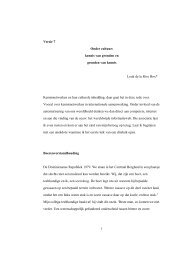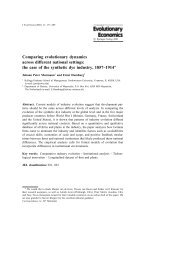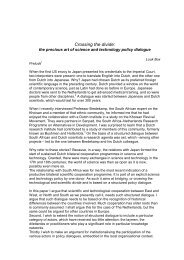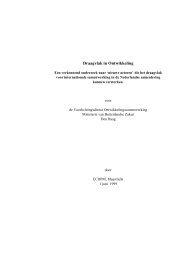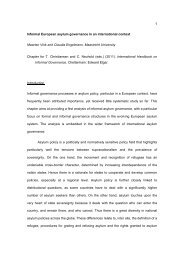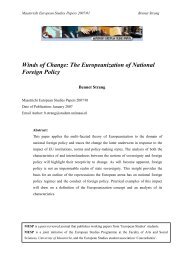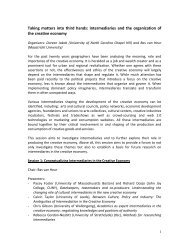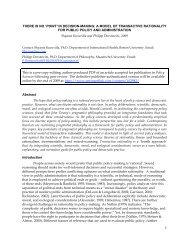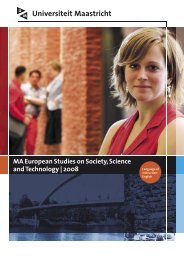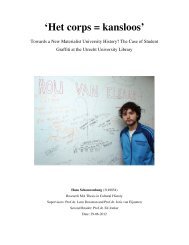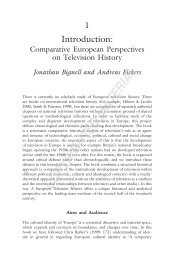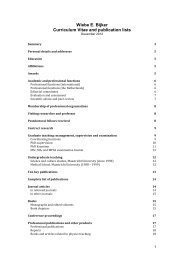Download paper - Maastricht University
Download paper - Maastricht University
Download paper - Maastricht University
You also want an ePaper? Increase the reach of your titles
YUMPU automatically turns print PDFs into web optimized ePapers that Google loves.
<strong>Maastricht</strong> European Studies Papers 2007/07 L. Unbehauen<br />
Trend IV analysis of the European <strong>University</strong> Association (EUA), a snapshot of the current<br />
state of progress will be provided that prepares the overall conclusion.<br />
2. Nature of the Bologna Process: a Non-Binding Intergovernmental<br />
Agreement<br />
Once asked what the Bologna Process really is, most students studying abroad can only come<br />
up with vague answers. This is alarming because these students are actually the living<br />
example of what this process is about: student mobility and the establishment of a European<br />
Higher Education Area (EHEA) by 2010 1 (Bologna Declaration, 1999). Due to this obvious<br />
knowledge gap the author deems it necessary to first clarify the very nature, content and<br />
development of this educational reform process.<br />
By definition, the Bologna Process is a synonym for a thorough reform of Europe’s<br />
higher education systems, which has been footed upon the intergovernmental agreement of<br />
currently 45 pan-European members to converge their degree structures and means of quality<br />
assessment into a common framework (Bologna Declaration, 1999). The overall aim is to<br />
promote the comparability of degrees which in itself is a prerequisite for the aspired increase<br />
in transnational mobility in the educational sector.<br />
It is not based on a binding treaty but builds upon the Bologna Declaration of 1999<br />
and several policy documents that have been adopted by the ministers responsible for higher<br />
education of the participating countries in the post-1999 follow-up process. Due to the fact<br />
that these documents are not legally binding, “it is the free will of every country and its higher<br />
education community to endorse or reject the principles of the Bologna Process, although the<br />
effect of ‘international peer pressure’ should not be underestimated” (Council of Europe,<br />
2006, p. 1) as individual countries might fear to fall behind the mainstream of change. Its<br />
voluntary and flexible approach, however, demonstrates the sensitivity of education policy<br />
which functions as a cornerstone of national sovereignty and national cultural heritage and is<br />
also the reason for delay of reforms and implementation problems. To calm national concerns<br />
it is repeatedly emphasized that the goal of establishing the EHEA is not foreseeing the<br />
embodiment of a “single education policy, but rather embracing a diversity of national<br />
education systems which learn to interact” (Norwegian Ministry of Education and Research,<br />
1 The Bologna Process should facilitate translation of one system to the other and therefore contribute to the<br />
increase of student and staff mobility and their employability. Moreover, it should boost the quality and<br />
attractiveness of European higher education for non-Europeans.<br />
4



